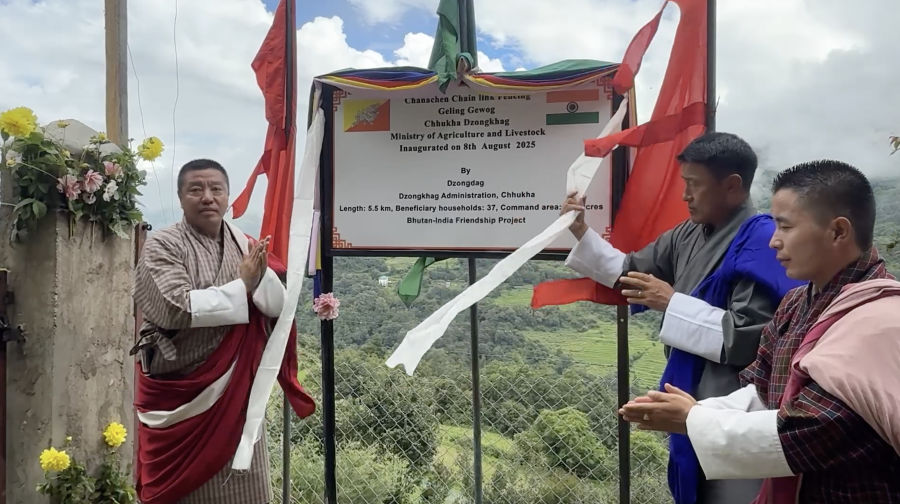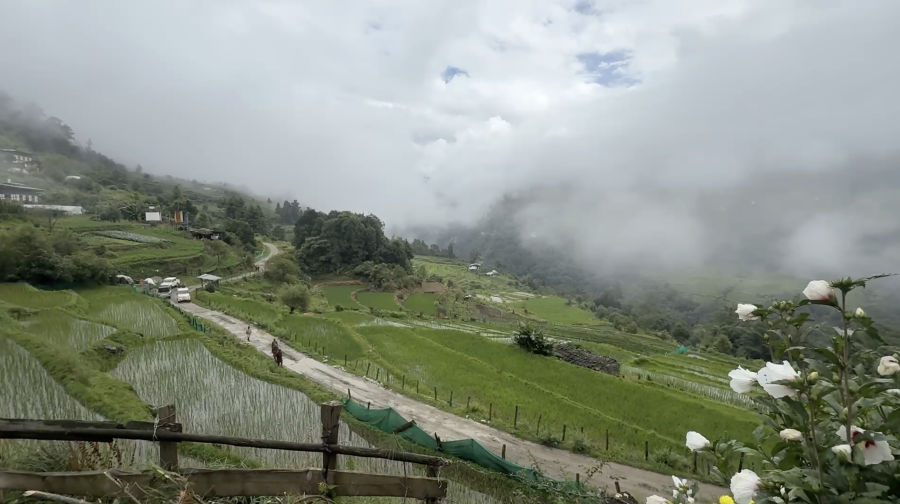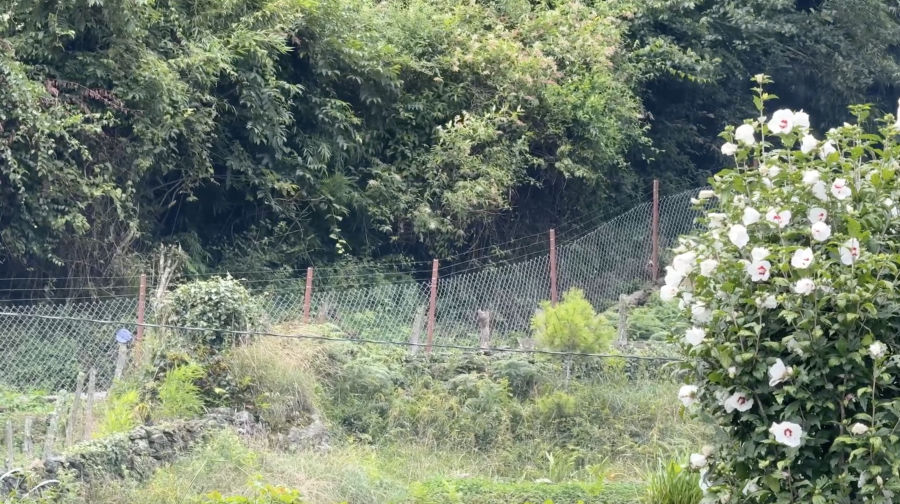 In Geling Gewog, Chhukha, Chanachen Organic Village, already a leading example in organic farming, is set to take its success even further. The installation of more than five kilometres of chain-link fencing aims to protect farmlands, boost livelihoods, and strengthen community resilience.
In Geling Gewog, Chhukha, Chanachen Organic Village, already a leading example in organic farming, is set to take its success even further. The installation of more than five kilometres of chain-link fencing aims to protect farmlands, boost livelihoods, and strengthen community resilience.
As evening falls over Chanachen, the Organic Model Village of Chhukha, a long-awaited sense of peace finally settles in.

For the farmers here, the struggle of protecting crops from wild animals may soon be a thing of the past.
With the newly installed chain-link fence encircling the entire village, the threat to their farmlands is now dramatically reduced.
This major intervention is not only expected to protect vital produce but also inspire farmers to work with renewed confidence and determination.

According to the villagers, protecting their crops has long been a major challenge, with wild animals often destroying the fruits of their hard work.
“People here all depend on agriculture. But no matter how much we worked hard, wild animals would destroy the crops at night. Without proper fencing, wildlife issues affected us badly,” said Wangdi, a Farmer, Chanachen, Geling Gewog, Chhukha.
“Protecting our crops from wild animals was one of our biggest challenges. Honestly, the way we had to guard our fields day and night, it sometimes felt like we gave more attention to our crops than even to our children. The effort required to protect them was far greater than the effort it took to grow them. No matter what we planted, wild animals would come and destroy everything,” said Passang Dorji, Farmer, Chanachen, Geling Gewog, Chhukha.
“There are many different animals in our village. There are bears, wild boars, deer, monkeys, porcupines and even small animals like cats. Now with the installation of the chain-link fence, it will help us a lot,” said Dawa Gyeltshen, Geling-Geygoen Tshogpa, Geling Gewog, Chhukha.
With the fencing that covers about 150 acres of land, farmers are now confident not only in growing for themselves but also in producing for commercial purposes.
“What is important is the result. And for farmers, for the hard work they put in, it is important to get a good product at the end. This was difficult in the past. Now with the fencing, they can not only grow for themselves but also commercial purposes,” said Kinley Dorji, Geling Gup, Chhukha.
According to district agriculture officials, the Nu 4.6 M project funded through the Bhutan–India Friendship Project was prioritised to address the persistent challenge of human-wildlife conflict, a major threat to rural livelihoods and agricultural productivity.
The officials said the fencing delivers lasting benefits far beyond its initial cost, significantly reducing crop losses, boosting household incomes, enhancing food security, and promoting sustainable agricultural practices.
Kinley Dem, Chhukha
Edited by Phub Gyem








